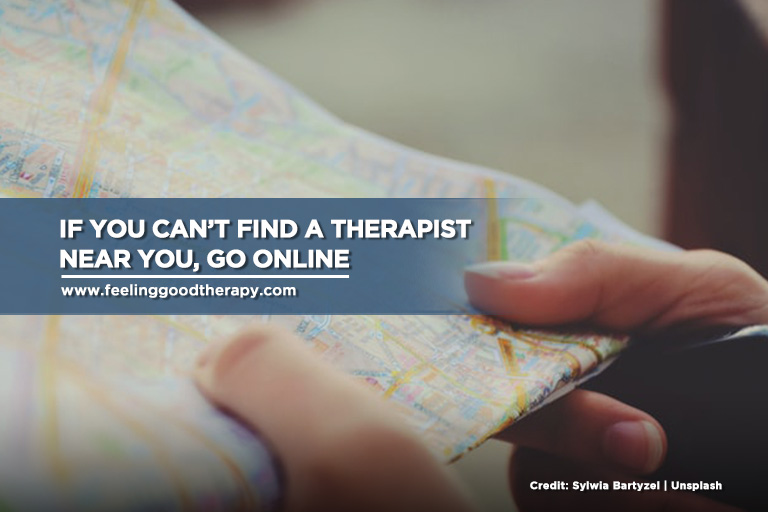How to Find the Right Therapist for You
Finding a therapist that is a good fit for you or a loved one is not always a walk in the park. Mental health professionals have become in increasingly high demand these days, as many people grapple with anxiety and depression related to the pandemic, social injustice, financial stress, and other disorders or trauma. Although it might take quite a bit some time and effort to find a therapist who is the best fit for you and all of your needs, it is worthwhile in the long run.
You’ll want to pick a therapist who offers openings that fit into your schedule, falls within your budget or takes your insurance, is experienced with treating the particular problems you’re facing, and ensures that you’re feeling safe and comfortable enough to open up. Here are a few tips on how you can find the right therapist for you.
What Is a Therapist?
Therapists, to speak broadly, are professionals trained to provide rehabilitation and treatment. This term often refers to psychologists, though it may also include others who offer many services, such as life coaches, counselors, and social workers. Though the term is not a protected occupational title, many types of therapists must be licensed to practice. Occupational therapists and marriage and family therapists both fall under this category. Therapists, sometimes known as psychotherapists or counselors, play integral roles in helping patients overcome their mental health issues.
How to Get a Therapist
Wondering how to find a good therapist in Los Angeles? Here are some tips:
As you are the central part of your healing process, it’s up to you to decide who you want to help guide you throughout the process. Ask yourself some questions about what you need help with, such as:
- Why are you going to therapy? Common reasons include anxiety, depression, adjusting to a new situation, or relationships.
- What type of therapist do you think you’d be most comfortable with? You may prefer a professional you know nothing about or someone trained in social justice with a solid understanding of your unique situation.
- What kind of approach do you think you’ll respond to? You might want something more solutions-oriented and intense, or you may prefer being able to break cultural stigmas and grow more comfortable being open with your feelings.
Though you do not need to be an expert on all kinds of therapy, you should make sure you can communicate what you want to your therapist so they can determine if they have the right tools to assist and advise you.
Places to Look
Referrals
While some people might feel comfortable asking their family and friends for therapist recommendations, those who are less public can talk to their primary care physician. As healthcare providers have their own networks, they often refer clients to each other if they aren’t the right fit.
Insurance Directories
If the therapist is in-network and has an insurance plan, the client is only responsible for the co-pay. Contrarily, if they’re out of network, all insurance and benefit plans have different out-of-network deductibles. Thus, the client will pay a certain amount of money out of pocket before insurance kicks in. Therapists will frequently provide their clients with receipts to send to the insurance company, which will reimburse a percentage directly to the client.
Online Directories
Psychology Today provides the most widely used therapist directory, which generates over 95,000 referrals per day and includes over 165,000 therapists and treatment centers. You can search by various categories, including kinds of therapy, price, ethnicity, faith, location, insurance, age, issues, sexuality, gender, and language.
Another resource is GoodTherapy, which has filters allowing you to search by evening, weekend availability, and wheelchair accessibility. There has also been a movement to make more specialized directories over the past few years. For example, TherapyDen has even more filters to search with, such as political anxiety, racial justice, sex-positive, LGBT issues, and kink-friendly. Consider reaching out to churches, community organizations, or other therapists for advice or assistance for specific needs.
Searching for Criteria
Location
In case you’re asking yourself, “how do I find the best therapist near me?” you should know that fewer clients now search for therapists based on how close they are to them or their workplace. Location is less of a determining factor, mainly due to the pandemic causing many therapists to start seeing their clients over video. However, it’s important to remember that therapists can be reprimanded for working with residents outside their licensed state. This protects the client if the therapist does anything inappropriate: if they are in-state, they can report any issues to the state’s licensing board.
Budget
If you cannot afford to pay out of pocket or find someone appropriate through your insurance network, you may want to look for therapists who accept reduced-fee or sliding scale rates. Otherwise, you can consider a therapist in training. These are commonly graduate students or recent graduates who are looking for hours to qualify for certification and often work with a supervisor.
Credentials
It’s important to confirm that a therapist is licensed, meaning they have completed a specific number of hours of clinical experience. If you’re looking to find a therapist in California (or elsewhere), check the local state board to determine if a therapist is licensed and has been suspended or reprimanded.
Therapists who have master’s degrees can get different licenses, all of which have their own requirements and nuances:
- Licensed professional counselor (LCP)
- Licensed marriage and family therapist (LMFT)
- Licensed clinical social work (LCSW)
Additionally, psychiatric-mental health nurse practitioners (PMHNP) can prescribe medications, conduct therapy, and diagnose. Physiatrists are medical doctors and can prescribe medication. Psychologists can do assessments and testing. While visiting psychologists and psychiatrists usually is more expensive, they typically provide more specialized and in-depth training.
Are you looking for psychotherapy in Los Angeles? Search no further than the Feeling Good Wellness Center. Contact Dr. Katie Dashtan at 831-621-1150.






Leave a Reply
Want to join the discussion?Feel free to contribute!